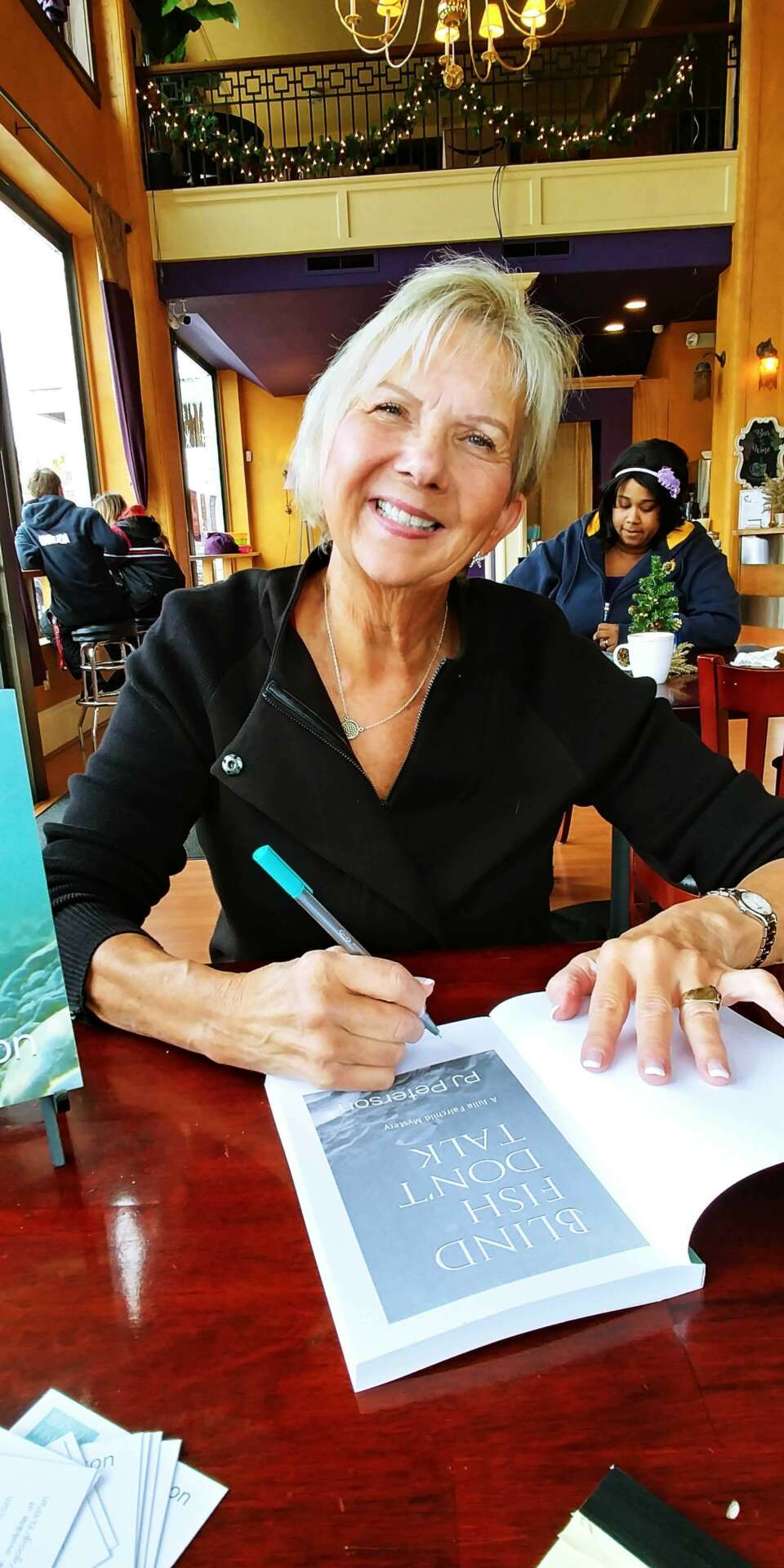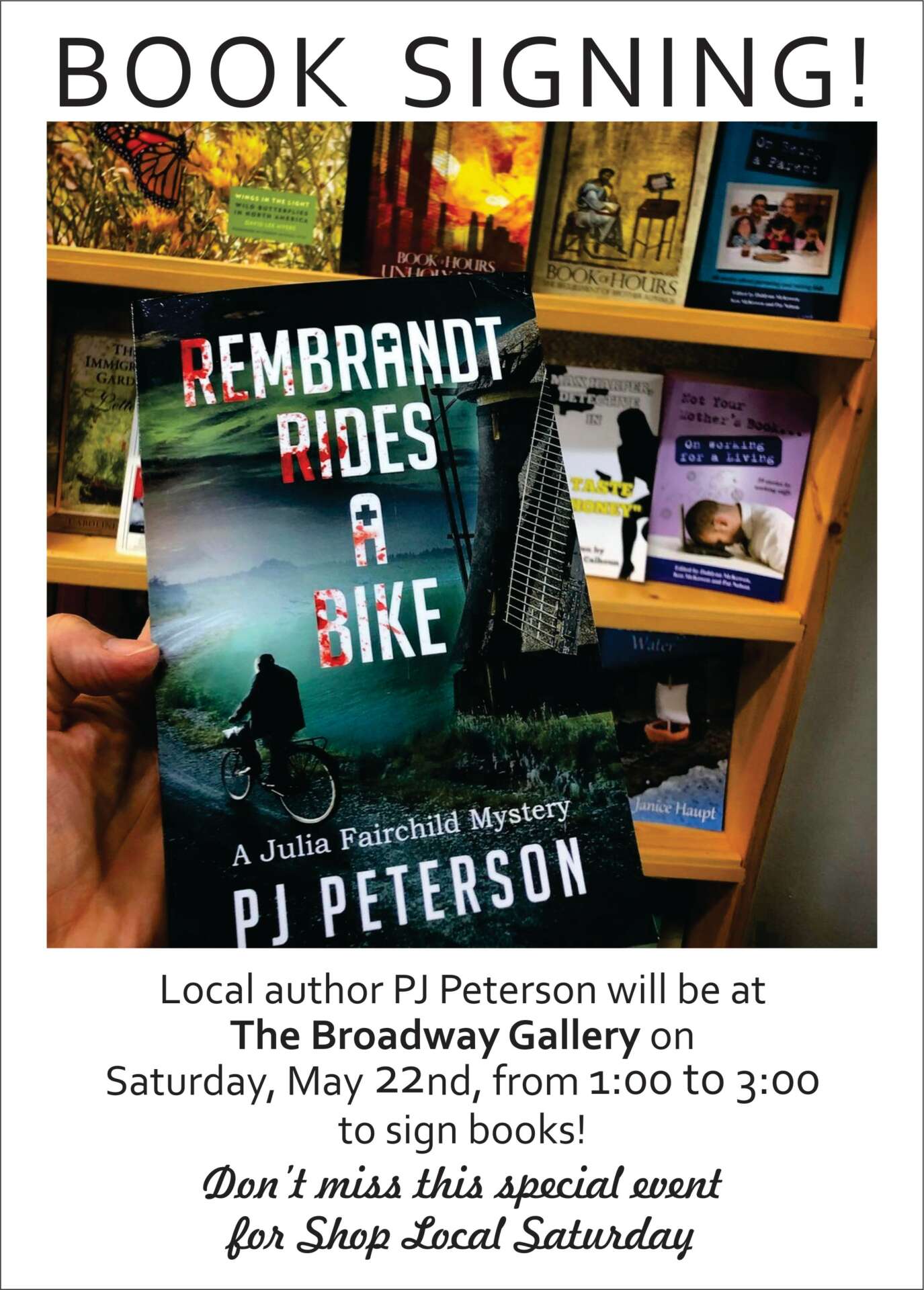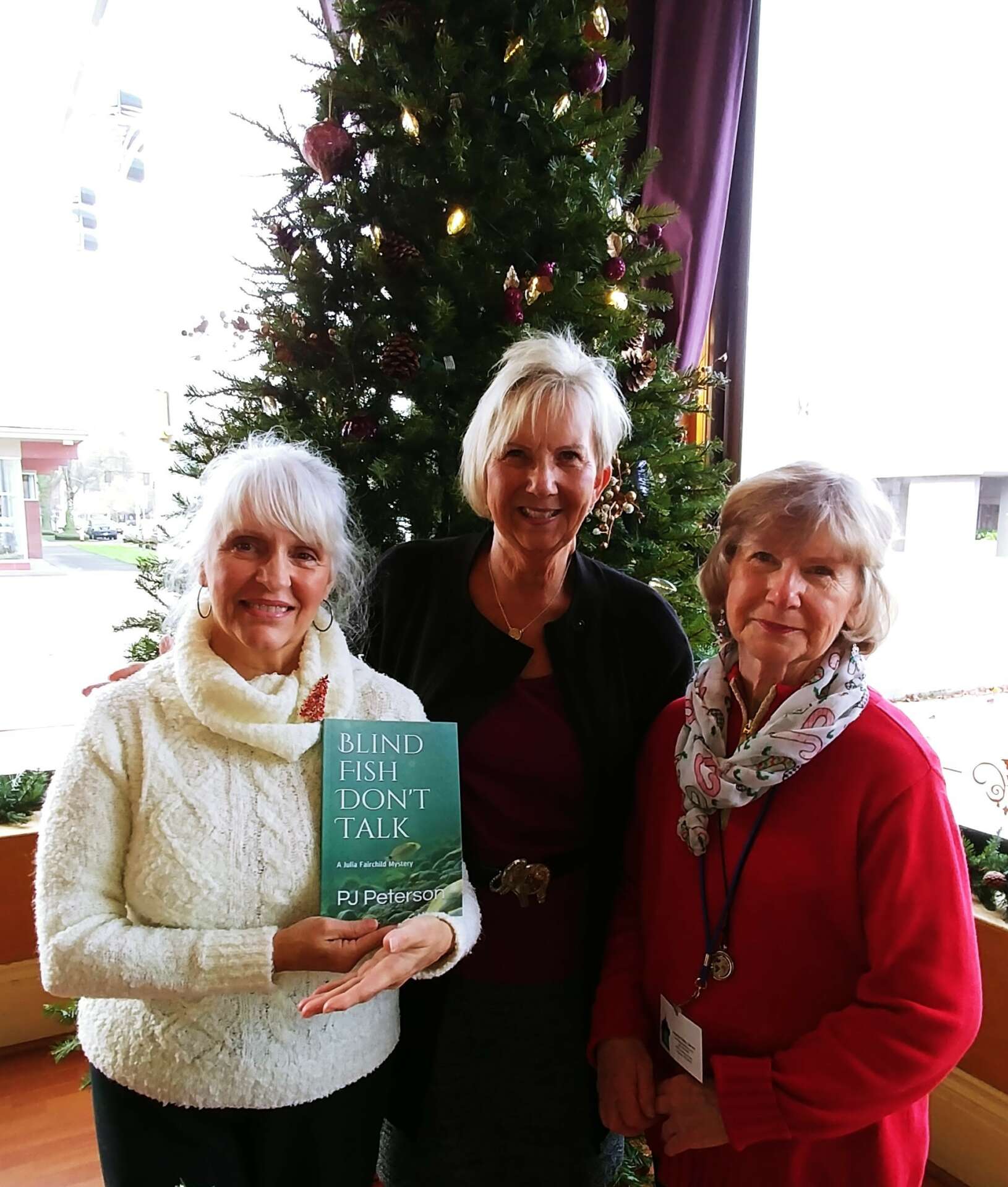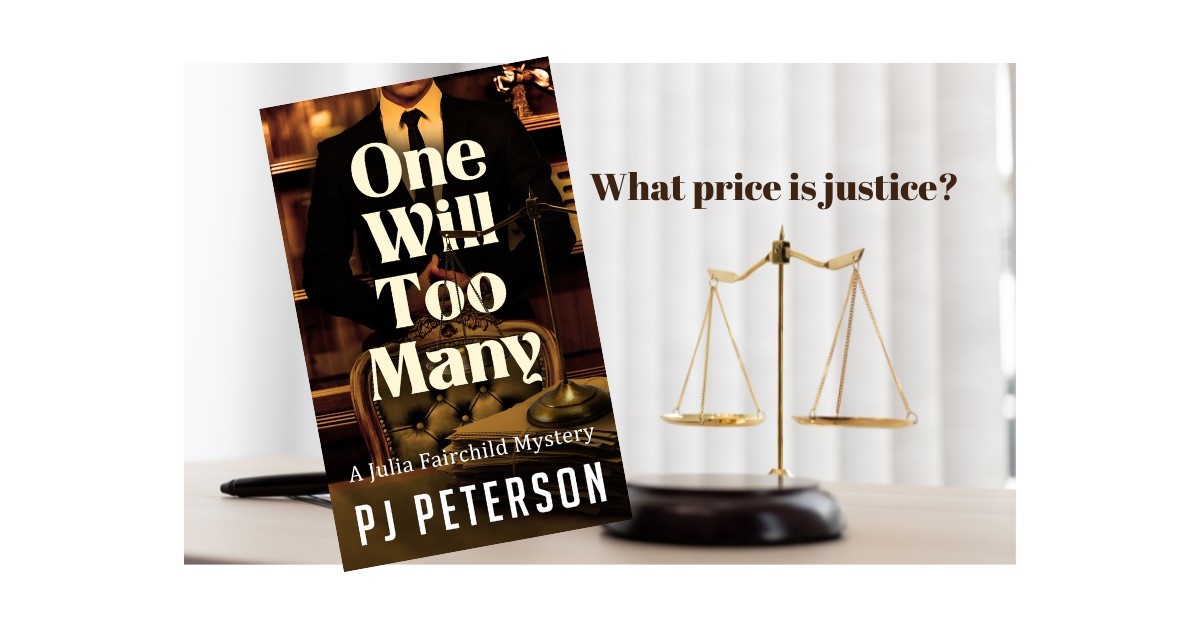We were lucky to catch up with PJ Peterson recently and have shared our conversation below.
PJ, looking forward to hearing all of your stories today. Can you talk to us about how you learned to do what you do?
I’ve always loved to write and read. As far back as sixth grade I was selected as the co-editor of our elementary school “newspaper”, followed by the same honor in seventh grade. I read biographies, mysteries, historical fiction. In college I took a couple of literature classes and enjoyed writing essays about what I’d read.
During my residency (Internal Medicine) my best friend gave me a clever journal called “Book of Days” which had drawings of cats and kittens and about 3 inches of space for each day’s recordings. We were both cat lovers. I started journaling, and haven’t stopped since. My first book, Blind Fish Don’t Talk, was a direct result of writing an entry about a trip i’d just taken to St, Maarten. Somehow it morphed into a book, which I finished in about a year. I had never aspired to be an author necessarily. I was a full-time physician with a family and wore several “hats” in the medical community. Writing was definitely a back-burner entity. But once I retired, I needed something to do and actively pursued doing something with my book, as I’d promised my now-deceased dad I would.
The problem was that I wrote it about forty years ago. I knew nothing about proper professional editing, awesome covers, copywriting, and so forth. I had written it so long ago that it was on a floppy disc (remember those?) with one printed copy. I had to take it to a local computer/IT company to have it transferred to a CD. One chapter wouldn’t convert so I used my printed copy to recreate it.
Getting it published was the next problem to solve. I made a half-hearted attempt to attract an agent, but didn’t really have the confidence in my own book. Then I met a young man who had worked for Amazon’s Kindle in its early days and he walked me through the process. Self-publishing is an amazing adventure!
It wasn’t exactly like the Kevin Costner’s Field of Dreams–build it and they may or may not come. But pushing that “publish” button on KDP was like a magic potion, Once I’d done it, I wanted to do it again. And I’ve done it five more times, with two more books ready to release later this year.
I wish I’d known more about the entire writing/publishing process with my first book. But, then again, I may have thrown up my hands and given up. Having just jumped in without knowing all those steps that I had skipped may have been a good thing. I certainly have read many books now about writing, plotting, editing, and getting published. I meet monthly on Zoom (which wouldn’t have happened perhaps except for COVID) with a group of fellow authors. We chat, we share, we learn, we encourage. And we publish.

Great, appreciate you sharing that with us. Before we ask you to share more of your insights, can you take a moment to introduce yourself and how you got to where you are today to our readers.
I’m a retired physician, having practiced Internal Medicine in my smallish community for thirty-seven years before retiring. I had wanted to be a doctor and “help people” since I was in second grade because I loved my ENT physician and knew he had gone on several trips on the Good Ship HOPE. I aspired to be like him.
Once I retired, I dusted off the floppy disc of murder mystery I’d written in my early years and ended up self-publishing. I was very proud of my first Julia Fairchild Mystery, Blind Fish Don’t Talk, despite its pimples and shortcomings. Since that first book, I have learned much more about writing and plotting, the value of professional editing and covers, and am trying to master the art of marketing.
What might set me apart from others in my writing is that I set a bit of medical mystery in most of them. My writing tends to be more of a classic “whodunit” style, ala Agatha Christie. One reviewer described Julia Fairchild as “becoming more Jessica Fletcher-esque.” That feels good.
I have so much material and stories to draw on from my many years of relationships with my patients, many of whom became more like friends than just patients. I can picture an individual person and use his/her traits to create a character. As I write, it’s much easier to use a real person. I ask myself “what would Mr. J. do in this situation?” and the answer is often exactly what I need.

For you, what’s the most rewarding aspect of being a creative?
I confess that I love to hear someone say they enjoy reading my books, or that they relate to my characters, and encourage me to write more books. I’m not expecting to be a blockbuster author. I’m well-known in my own community and that’s enough, sort of. Because I’m already retired, I don’t have to support myself with my writing. If I had started as a younger person, I would probably have written articles for magazines, and free-lanced. As it is, I am happy to write my novels and tell stories. Books are meant to entertain and that’s what I hope to do.

Is there something you think non-creatives will struggle to understand about your journey as a creative? Maybe you can provide some insight – you never know who might benefit from the enlightenment.
“Creatives” have to create! It’s not necessarily about money or fame, although those can be nice by-products. It’s like being a professional pianist or an actor or a musician. The drive to write or perform is so strong that I must do it. Sure, there are days when I struggle with figuring out what my character should do next. So I have to ask him or her what they’re looking for or where they need to go to solve the mystery. But I can’t abandon the story. I might set it aside and work on another project and wait for a seed to sprout in my unconscious mind, which happens every time sooner or later.
Recently I decided to start a second series because I wanted some new characters to play with. And create new mysteries and more situations and dilemmas for them to solve. “Christie” even named herself and invited a couple of her old friends to join the party. I can hardly wait to find out what will happen in book two!
One thing I’ve learned about being a creative, is that any real-life event or interaction can become a seed for a plot or a scene. I suspect being a composer is much the same. It’s looking at something with a different set of eyes and setting it to music or getting it on paper in a story.

Contact Info:
- Website: https://www.pjpetersonauthor.com
- Facebook: https://www.facebook.com/pjpetersonauthor/
Image Credits
They are all my images, taken by me or a friend on my camera.


